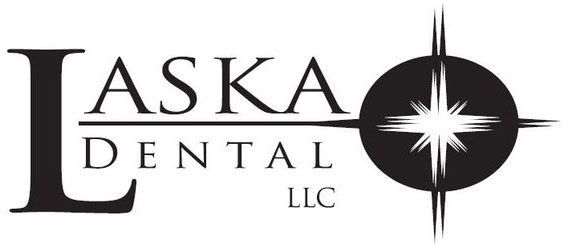Oral Hygiene Services
Request Call Back
Hero Request Form
Thank you for choosing Laska Dental LLC for all your dental needs! We have created a comfortable environment where you can feel confident in the level of dental care you receive.
What to Expect at Your First Visit (Adults)
During your first visit, our objective is to get to know you better, to become familiar with your past dental experiences, and to establish a treatment plan that will best meet your current desires. In most cases, we will also clean your teeth and perform a comprehensive exam by our doctor. When you arrive for your first visit, please be prepared to complete all insurance and health information forms.
Also, please assist us by providing the following information:
- A panoramic X-ray taken within the past five years
- Bitewing X-rays are taken within the last year
- If you have dental insurance, please bring your insurance card
Please
call today for more information.
What to Expect at Your First Visit (Children)
A child’s first dental visit at our office should be scheduled around their third birthday. The most important part of the visit is getting to know and becoming comfortable with a doctor and his staff. A pleasant, comfortable first visit builds trust and helps put the child at ease during future dental visits. Children should be encouraged to discuss any fears or anxiety they feel. Our goal for this visit will be to clean your child’s teeth, give a fluoride treatment, and perform a comprehensive exam by our doctor. Please call today for more information.
Comprehensive Exam
At your first appointment, your doctor will perform a thorough exam. Unless you have a current set with you, X-rays will be taken, allowing your doctor to examine your mouth for tooth decay, periodontal problems, jaw problems, and any signs of oral cancer with the assistance of VELSCOPE technology. These diagnostic records will help your doctor provide an evaluation outlining any existing dental problems and proposed treatment. We encourage you to ask questions. We’ll be glad to discuss any concerns you may have. Please call today for more information.
Open Communication
We believe that better dental care begins with open communication. We promise to speak candidly with you about our diagnosis and recommendations, any alternative treatments, and any symptoms present that may require treatment from a specialist. Working together, we can achieve a true partnership with one common goal – keeping your smile beautiful and your teeth, gums, and jaw joints healthy! Please call today for more information.
About Teeth
Throughout your life, you will have two sets of teeth: primary (baby) teeth and secondary (permanent) teeth. At age 6-8 months, the primary teeth appear; all 20 are in place by age 3.
Permanent teeth will begin to grow around age 6, and except for wisdom teeth, are all present between ages 12 and 14. The next teeth to grow in are the 12-year molars and, finally, the wisdom teeth. Wisdom teeth typically begin breaking through from age 17 and on. The total number of permanent teeth is 32, though few people have room for all 32 teeth. This is why wisdom teeth are usually removed.
Your front teeth are called incisors. The sharp “fang-like” teeth are canines. The next side teeth are referred to as pre-molars or bicuspids, and the back teeth are molars. Your permanent teeth are the ones you keep for life, so it is vital that they are brushed and flossed regularly and that periodic checkups by a dentist are followed. Please call today for more information.
Diet Control
The teeth, bones, and soft tissues of the mouth require a healthy, well-balanced diet. A variety of foods from the five food groups help minimize and avoid cavities and other dental problems. Consumption of foods that contain sugars and starches should be decreased. These foods can include candies, cookies, chips, and crackers. Healthier foods, such as vegetables, low-fat yogurt, and cheeses, help promote stronger teeth. Caution should be used with soda, juices, and sports drinks as these will soften tooth enamel and lead to tooth decay. Please call today for more information.
Dental Visits
You should visit your general dentist twice a year (once every six months). In order to maintain a healthy smile, it is vital to have professional cleanings and regular checkups. Your dentist will examine your teeth and provide an evaluation of existing dental problems and proposed treatment. If you have a dental
emergency, you should call your dentist immediately. Please call today for more information.
Early Dental Care - Teething
Normally, the first tooth erupts between the ages of 6 and 12 months. Gums are sore, tender, and sometimes irritable until the age of 3. Rubbing sore gums gently with a clean finger, the back of a cold spoon, or a cold, wet cloth helps soothe the gums. Teething rings work well, but avoid teething biscuits—they contain sugar that is not good for baby teeth.
While your baby is teething, it is important to monitor the teeth for signs of baby bottle decay. Examine the teeth, especially on the inside or the tongue side, every two weeks for dull spots (whiter than the tooth surface) or lines. A bottle containing anything other than water and left in an infant’s mouth while sleeping can cause decay. This happens because sugar in the liquid mixes with bacteria to form dental plaque, which produces acids that attack the tooth enamel. Each time a child drinks liquids containing sugar (even Milk contains sugar), acids attack the teeth for about 20 minutes. When awake, saliva carries away the liquid. During sleep, the saliva flow significantly decreases, and liquids pool around the child’s teeth for long periods, covering the teeth in acids.
Once a child has even one tooth, the parent should start brushing the tooth/teeth to keep it clean and start getting the child used to having a toothbrush in their mouth. Please call today for more information.
Infant Tooth Eruption
A child’s teeth actually start forming before birth. As early as four months of age, the primary or “baby” teeth push through the gums — the lower central incisors are first, then the upper central incisors. The remainder of the 20 primary teeth typically erupt by age 3, but the place and order vary.
Permanent teeth begin eruption around age 6, starting with the first molars and lower central incisors. This process continues until around age 21. Adults have 28 secondary (permanent) teeth — 32 including the third molars (wisdom teeth). Please call today for more information.
Preventing Baby Bottle Tooth Decay
Tooth decay in infants can be minimized or totally prevented by not allowing sleeping infants to be breast or bottle-fed. Infants who need a bottle to comfortably fall asleep should be given a water-filled bottle or a pacifier. Our office is dedicated to fighting baby bottle tooth decay. Let us know if you notice any signs of decay or anything unusual in your child’s mouth. Please
call today for more information.


Share On: